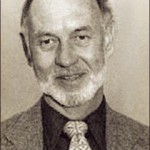Was Jesus a Dying-and-Rising God?

As I mentioned in the previous post, over the past few months I’ve been rereading several important scholarly works from 20th-century NT Studies. I found it interesting that several scholars seemed to be in dialog with one another — especially those involved in Q Gospel research and the cynic-sage Jesus theory. Jonathan Z. Smith, for example, relied heavily on Burton Mack’s works, while Mack referred to Smith in his books, including (among others) The Christian Myth, Who Wrote the New Testament, and A Myth of Innocence.
As you may recall, in the last book listed above, Mack argued that some of the earliest Jesus-following groups were not Christ cults. In fact, the notions of Jesus’ martyrdom, resurrection, exaltation, ascension, etc. could have seemed alien to them.
It should be emphasized at this point that nowhere in this tradition running from Q into the early stages of biographic interest in Jesus is there any evidence for a view of Jesus’ death as a “saving event,” much less for thinking that Jesus had been transformed by means of a resurrection. The express application of the notion that Jesus had suffered a prophet’s fate appears to have been made when the authors of the gospels combined the Jesus traditions with views of Jesus’ death and resurrection that had developed in the Christ cults. But the notion of rejection was very near the surface in some of the later oracles in Q, thus preparing the way for thinking of Jesus as the rejected prophet. That Jesus had died a prophet’s death would only have meant, however, that he also and especially had been a true prophet in the line of prophets, nothing more. That would have been, in itself, a striking claim about Jesus and his purposes, to be sure, a claim of great significance for the emergence of Christian thought. But it would be wrong to read in any additional Christian nuances about the importance of Jesus’ death for those thinking in these terms. [Mack 1988, p. 86, emphasis mine]
Smith agreed. He believed that several competing groups of Jesus-followers sustained their own different communities. Some communities believed in a dying-and-rising Jesus; some did not. Consider the community that produced and preserved the Didache. For them, the bread and wine had nothing to do with the body and blood of a martyred savior.
[T]here is a set of Jesus-traditions which either do not focus on his death, or conceive of his death without attributing either saving significance to the death or linking it to a resurrection. For these latter options — a significance to Jesus’s death without a resurrection or the development of a ‘dying/rising’ myth with respect to Jesus — we must turn from the ‘movements in Palestine and southern Syria that cultivated the memory of Jesus as a founder-teacher’ to the ‘congregations in northern Syria, Asia Minor and Greece wherein the death and resurrection of the Christ were regarded as the founding events’. [Smith 1990, p. 138]
In Smith’s view, the Apostle Paul took the Jesus traditions he had received and pushed them along a new path of development, emphasizing the death-and-resurrection motif to that point where even the most central cultic rituals drew their entire meaning from it. And yet other Jesus-following communities focused their concerns on other things. He cites Mack here, noting five groups that “constructed thoroughly satisfying Jesus-myths without either a death or a resurrection.” [Reformatted below:] Continue reading “Did Jonathan Z. Smith Really Not Understand Ideal Types? (Part 2)”
